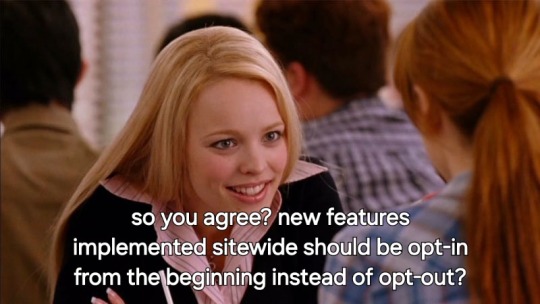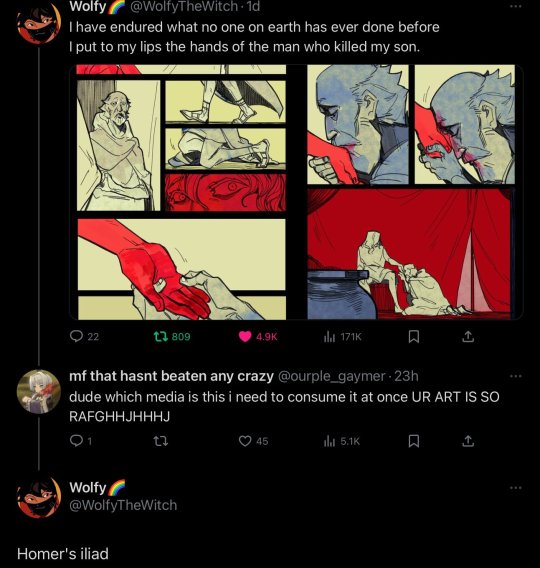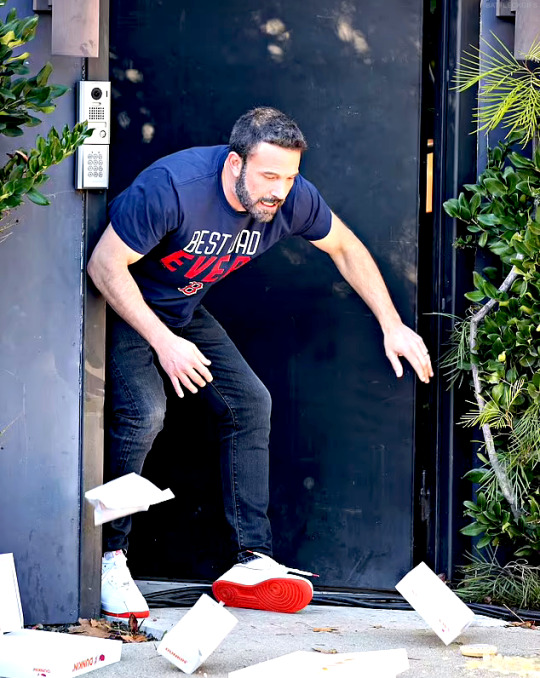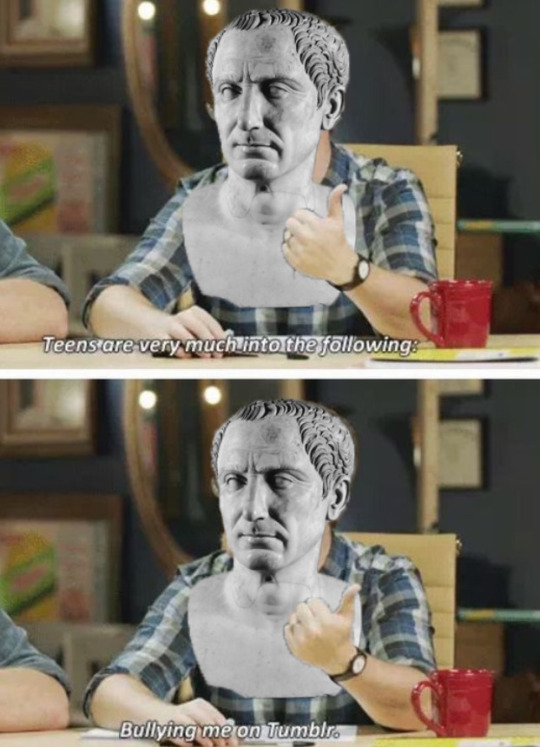#this is not mine!
Text
Hey, fellow spoonies! Got a min for a bit of writing that has absolutely transformed my relationship to my chronic illness?
This is from Mindfulness Meditation for Pain Relief by Jon Kabat-Zinn, based on his experiences co-running (?) a clinic specifically for people with severe unmanageable chronic illness & chronic pain. Part of the book is exercises, which weren't hugely impactful for me. But this section I've listened to over and over. It's been a game changer for me. Maybe it'll help you too.
Below the cut bc it's long.
"First, a working definition of mindfulness so we know what we're talking about when we use that word. You can think of mindfulness as pure awareness. In particular, the awareness that arises from paying attention, on purpose, in the present moment, without judgment or reaction, to whatever appears in the field of your experience.
You already have awareness. It’s as much a part of being human as our capacity for thinking or for breathing. So you can always ask yourself in any moment: is my awareness of pain, in pain? and then take a look and see. You can also expand this line of investigation to ask yourself, is my awareness of fear afraid? Is my awareness of anger, angry? Is my awareness of sadness, sad? Very revealing and liberating exploration, as we shall experience firsthand.
Of course being non-judgmental and non-reactive sounds like an ideal. But it isn't, really, not in the way we’re talking about it. It's a way of being in relationship to experience, a commitment to--as best we can–suspend our judging for a time, and suspend believing in our judgements as being true.
Of course, we judge everything, and tend to react automatically whenever things are not to our liking. And we can be very emotionally reactive, especially when we're hurting. So as we shall see further on, and in the practices themselves, we just observe the judging and reacting when they arise, and–as best we can–refrain from judging our judging, or reacting to our reactions.
A number of principles, attitudes, and perspectives are important to keep in mind when cultivating a mindful approach to working with chronic pain conditions or any other distressing elements in your life.
Here are seven that are fundamental and bear revisiting and keeping in mind, and listening to again and again, just as with the meditation practices. We will be making use of them every day, and even moment by moment throughout the day.
1. As we said, as long as you’re breathing there is really more right with you than wrong, no matter what is wrong. And our work will involve mobilizing those interior resources of your own inner landscape, of your body and mind, to work for you to improve the quality of your day-to-day and moment-to-moment life.
2. One of those interior resources is the power of the present moment. The power of “now” is enormous, yet mostly we persist in living in the past or in the future, in memory or in constant anticipation, worry, and planning, most of the time. And we never realize and never recognize how powerful and healing it can be to inhabit this moment, the only one we are ever alive in.
So strange as it may sound, it turns out it is very challenging to actually live in the present moment, even though it's the only time we ever really have to do anything: for learning, for growing, for coming to terms with things as they are, for expressing our affection and appreciation for others, for loving. All this takes ongoing practice.
3. Of course we are happy to show up more in the present moment as long as it's exactly to our liking. But it usually isn't anywhere near as good or as pleasant as we would wish it to be. That is true even if we don't have a chronic pain condition that we could see as the cause of all our troubles.
Have you noticed how easy it is to always want things to be different from how they actually are?
We certainly don't want to inhabit the present moment if we don't like it, and we certainly don't like it if we are in significant pain. So we can easily get caught up in trying to distract ourselves and escape from the present moment because it's not to our liking.
4. Our usual options when faced with situations we don't like and wouldn't want anyone to suffer from, are twofold. As we just saw, we can turn away from them and try to ignore them or escape from them as best we can. Or alternatively, we can get caught up in obsessing about our troubles endlessly and feel victimized.
Either way we might (as so many people do) turn to familiar resources at our disposal to dull the pain, such as alcohol or drugs, or food or TV, even if those coping strategies don't work, are addictive, or have terrible consequences that may make our lives worse in the long run.
We might also get into the habit of being irritable, gruff, and angry a good deal of the time, out of our own pain and frustration. Or emotionally withdrawn from others and from life, distant, cut off, in a state of perpetual contraction of both body and mind.
None of these coping strategies make for much happiness and ease of being. Grinning and bearing it isn't much fun. And blaming all our troubles on the pain doesn't actually make anything any better, as we usually come to see at some point or other. This can just further compound our frustration and even despair.
5. There is a third way of dealing with painful experiences, a way of being rather than perpetual doing and forcing. One that involves neither turning away from painful experiences, nor becoming overwhelmed by them. That third way is the way of mindfulness, the way of opening to and befriending our experience, however strange that may sound.
We do this by turning toward what we most fear to feel and opening gradually, over time, and only to the degree that you choose, to the full range of our experiences in any given moment, even when what we are experiencing is highly unpleasant, aversive, and unwanted.
You could think of it as putting out the welcome mat for what is happening. Because whatever it is, it is happening already. Any attempt to turn away is really a denying of your situation, which doesn't help much. And succumbing to resignation, a sense of being defeated, or to depression or perhaps even self-pity will clearly only make matters worse. If we take the turning-away route, we will be turning away from the opportunity to learn from what the pain has to teach us.
If we take the turning-away route, even though it may seem simpler when we are in a depressed mind-state, we may never find openings, new possibilities, new beginnings, new ways of being that are available to us right inside our own circumstances and our own mind and body. We might not discover that we can become stronger and more flexible in the face of whatever it is that we are dealing with, discover new options for relating to what we are carrying – which is the root meaning in Latin of the word “to suffer.” The approach of mindfulness, of turning-toward and opening to our experience – even when it is difficult – can readily lead to new ways of seeing including new possibilities for coming to terms with our situation in the moment, whether we like it or not, whether we want it or not.
This is called resilience, an interior strength we can cultivate through practice. A way to live, and live well, with what life offers up for us: “the full catastrophe,” as Zorba the Greek called it – the human condition itself.
6. This path of mindfulness involves learning to open to experience moment by moment with kindness and compassion towards oneself, whether what you are experiencing in any given moment is pleasant, unpleasant, or neither pleasant nor unpleasant. And without judging the experience as good if we like it, bad if we don't like it, and boring if we don't have any particular feeling one way or another.
As we said earlier, that doesn’t mean we won’t be judging plenty. But we can form the intention to suspend our hair-trigger tendency to judge everything according to whether we like it or not, and also our tendency to react emotionally and fairly automatically in a similar way : with acquisitiveness, even greediness, if we like it and therefore always want it to last or want more of it; and with rejection, anger, hatred, or disappointment if we don’t like it and want it to go away.
So non-judging and emotional balance in the face of challenging circumstances will be factors we can cultivate in working mindfully with our moment-to-moment experience–not as ideals we try to impose on ourselves or strive to grab hold of, but as potentials already within ourselves that we can learn to recognize and bring into greater awareness when they do arise.
Over time and with practice, we may find that being less emotionally reactive and less harshly judgemental, and kinder and more accepting of ourselves and our moments–however they may be–becomes more and more our default setting, rather than anger, resentment, fear, self-loathing, and contraction in both the mind and the body. And since these kinds of contractions of mind and body usually increase the intensity of our pain, they just compound our misery and suffering. This is one easy way we can exert significant positive influence over our pain.
7. None of this has to do with making anything go away. We’re not trying to suppress our pain or “control” it, or suppress our emotional state. We’re not trying to fix anything at all–even though we may want to, or feel helpless and resentful that medicine cannot fix what we feel is the matter. On the contrary, we are just looking for a place to sit or to stand, a momentary refuge within which we can contemplate the present moment, and perhaps discover some respite right in the middle of things as they are, however they are. Amazingly, this stance of what I often call non-doing or just being can very quickly lead to things changing–since things are always changing, even our pain and our relationship to it.
But sometimes if we are too stuck in our thought-habits, in the same old ruts regarding our condition, desperate to get somewhere else or fix something you think might be broken, or else make it go away, our very desire and fixation may lead to its just staying around longer, as if we were actually feeding those energies, as if we ourselves are locking ourselves in and preventing our world from changing. The world and our bodies are always changing. That is a natural law: the law of impermanence. Everything changes. Why would we be an exception? So sometimes patience and forbearance may be called for, and good strategies for allowing things to change and even heal on their own."
#jon kabat zinn#spoonie#mindfulness#coping strategies#chronic illness#chronic pain#pain management#mental health#I just have the audiobook so I've made my best guess at kabat zinn's punctuation#I'm not affiliated with him or anything I just found his work super helpful and want to share#if it seems helpful to you you might consider checking it out from your library to hear/read more and to help him out as a writer#this is not mine!#in case that's not obvious
21 notes
·
View notes
Text

#Coppernauts#The LEGO Movie#Benny the Spaceman#Bad Cop Good Cop#GCBC TLM#TLM#Benny TLM#Bad Cop TLM#Coppernauts r34?#This is not mine!#It's humor.
11 notes
·
View notes
Text
staff: our april fools joke this year is a silly feature that doesn't really do anything but give you a button to boop other users! they have to opt-in first though :)
me:

102K notes
·
View notes
Text
“kill them with kindness” Wrong. CURSE OF RA 𓀀 𓀁 𓀂 𓀃 𓀄 𓀅 𓀆 𓀇 𓀈 𓀉 𓀊 𓀋 𓀌 𓀍 𓀎 𓀏 𓀐 𓀑 𓀒 𓀓 𓀔 𓀕 𓀖 𓀗 𓀘 𓀙 𓀚 𓀛 𓀜 𓀝 𓀞 𓀟 𓀠 𓀡 𓀢 𓀣 𓀤 𓀥 𓀦 𓀧 𓀨 𓀩 𓀪 𓀫 𓀬 𓀭 𓀮 𓀯 𓀰 𓀱 𓀲 𓀳 𓀴 𓀵 𓀶 𓀷 𓀸 𓀹 𓀺 𓀻 𓀼 𓀽 𓀾 𓀿 𓁀 𓁁 𓁂 𓁃 𓁄 𓁅 𓁆 𓁇 𓁈 𓁉 𓁊 𓁋 𓁌 𓁍 𓁎 𓁏 𓁐 𓁑 𓀄 𓀅 𓀆
175K notes
·
View notes
Text


How does this keep happening to me
#i stole these screenshots they arent mine LOL#but if i had a nickel for every time#i could probably buy myself a meal
154K notes
·
View notes
Text
@stvksn on ig
144K notes
·
View notes
Text
“the arts and sciences are completely separate fields that should be pitted against each other” the overlap of the arts and sciences make up our entire perceivable reality they r fucking on the couch
95K notes
·
View notes
Text
"people show their true colours in life threatening situations" no, they show you what they act like when they're mortally terrified, an emotion notorious for literally turning your entire brain off to the point where people who go into those situations as a profession need to be literally trained on how to not have that happen
#am i arguing with random 'philosophical' type villains in my own head?#yes#it's a favourite past time of mine i hate every one of those 'i know the true nature of humans because i did horrible things to them' types#with every part of my soul
78K notes
·
View notes
Text
#in a shocking turn of events mine is a whole beautiful 0%.#against my better judgement? yes. but still#w ogóle wiadomo skąd wzięłam pomysł na poll ale cicho. ciii.#food
47K notes
·
View notes
Text





BEN AFFLECK
Jan 04 2024
#ben affleck#benaffleckedit#baffleckedit#affleckgifs#dilfsource#mensource#dccastedit#listen#lmao#mine.#misc: candids.#THERE'S ONE MORE
57K notes
·
View notes
Text
fucking love when I'm on a call with someone and they start to do a little errand or go somewhere else and they say "and you're coming with me" like. absolutely I am let's go on an adventure I've been spirited away
126K notes
·
View notes
Text
When you’ve been cooking for long enough, you stop making recipes and start making “shit in a skillet” and “whatever soup”
#mine#I’ll follow a recipe if I’m cooking for others but for myself? babygirl I just throw in whatever sounds good
51K notes
·
View notes
Text
This website is too mobile focused these days. Reblog and tell me what your desktop/laptop background is.
#mine is a HD screenshot from The Hunchback of Notre Dame#it's a shot of the cathedral's towers it's gorgeous
71K notes
·
View notes
Text
“The average US president has been charged with 1.54 felonies” factoid isn’t true. The average US President has been charged with 0 felonies. Donald trump, who has been charged with 71, is a statistical outlier and should not have been counted
#I’ve seen a couple variations on this post and it’s too good not to do#not mine#trump speaks again#satire#donald trump#parody
162K notes
·
View notes
